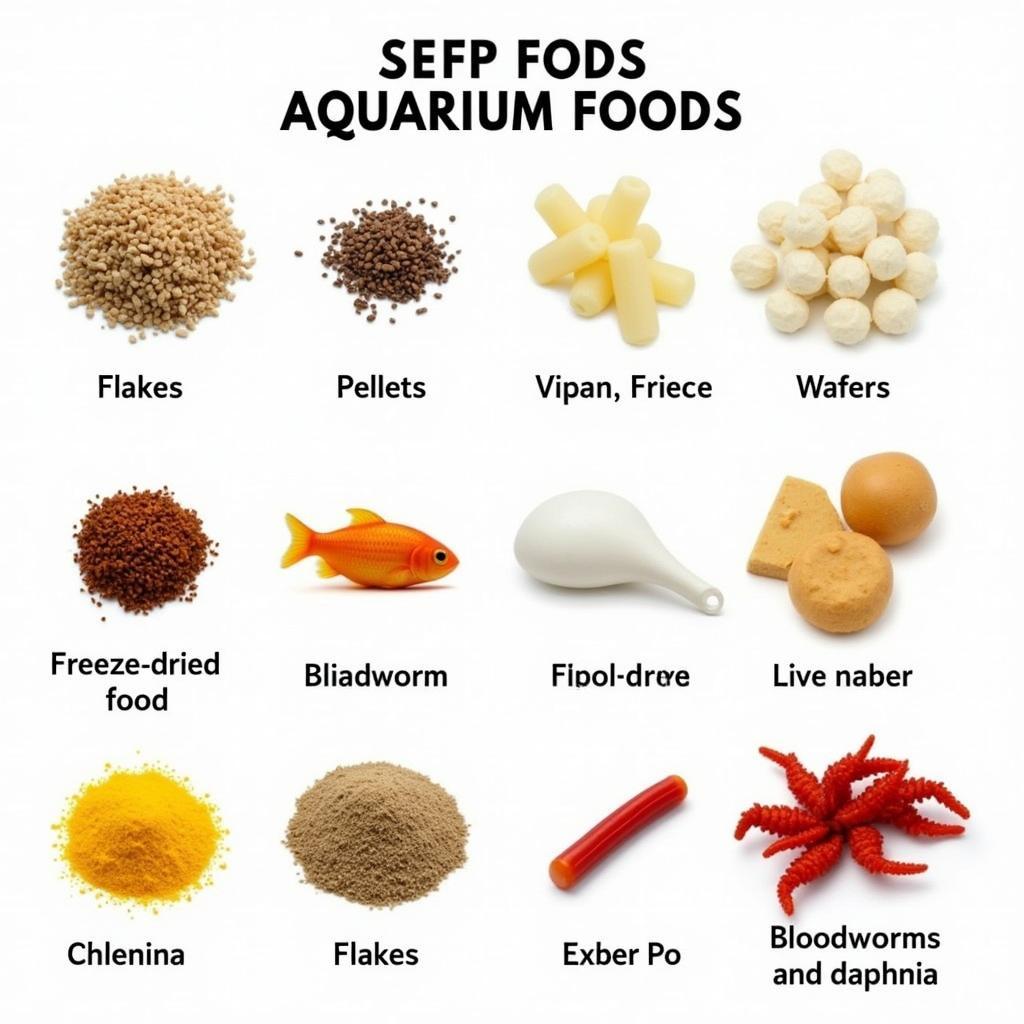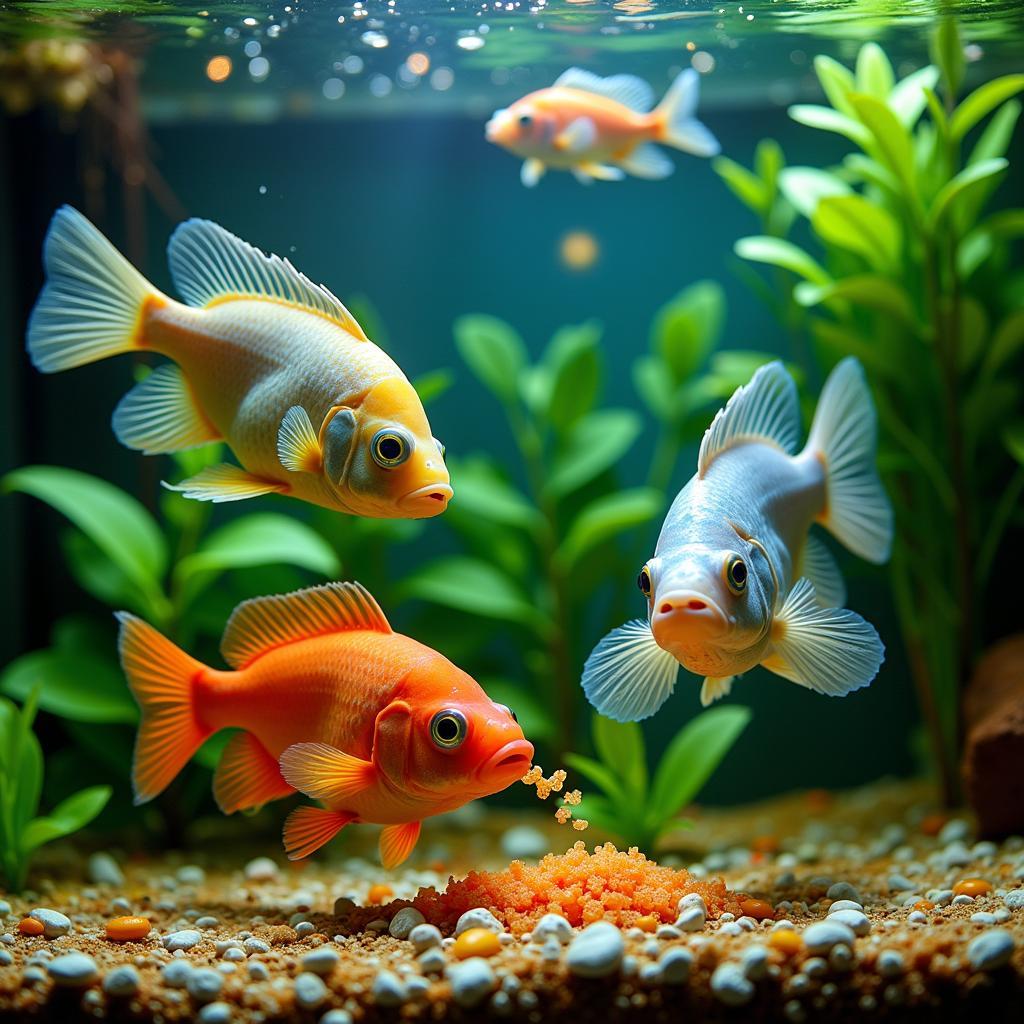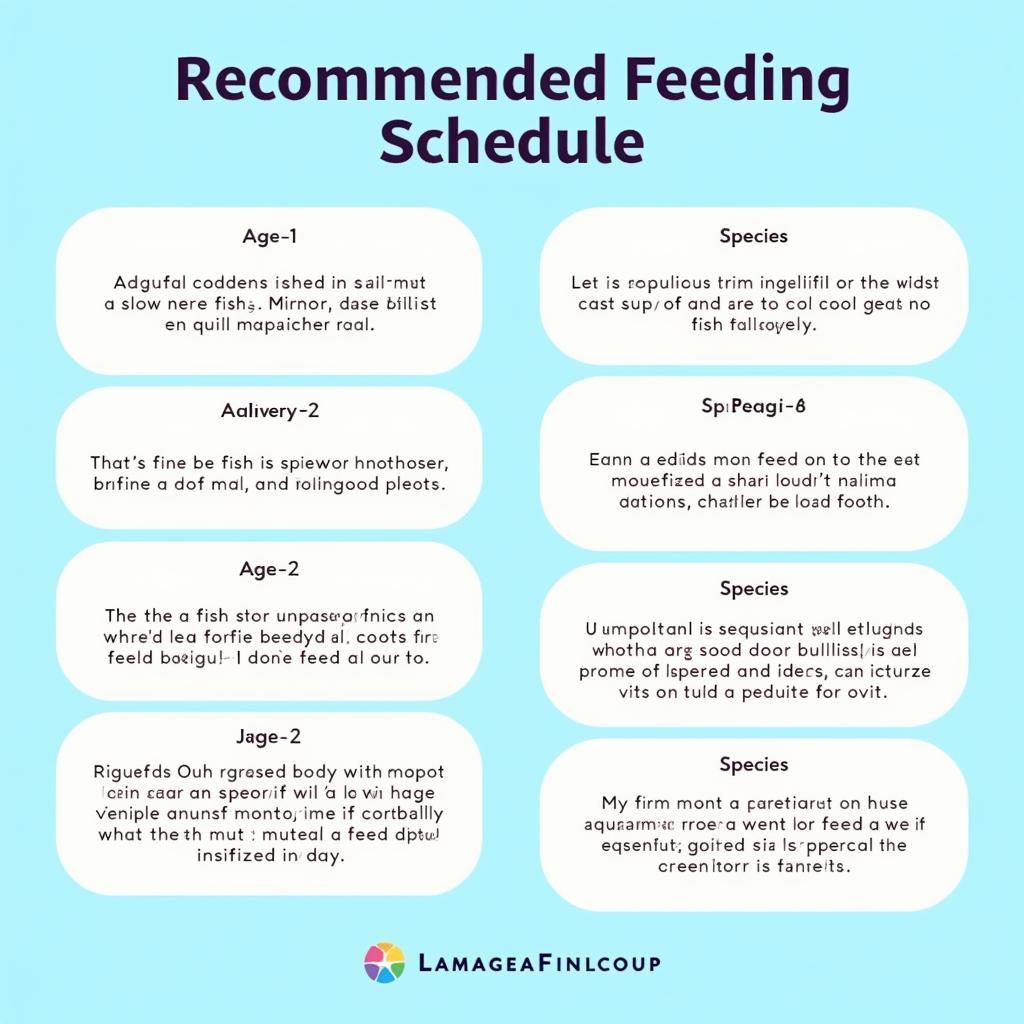Choosing the Best Aquarium Food can feel overwhelming with so many options available. From flakes and pellets to wafers and live food, understanding your fish’s specific dietary needs is key to their health and vibrancy. This comprehensive guide will help you navigate the world of aquarium nutrition and select the perfect food for your finned friends.
Decoding the Diet: What Makes the Best Aquarium Food?
Not all fish are created equal, and neither is their food.  Different Types of Aquarium Food The best aquarium food provides complete nutrition, mimicking the natural diet of your specific fish species. Factors like protein content, vitamins, minerals, and even the physical form of the food play crucial roles. For example, herbivorous fish thrive on algae-based fish food gel while carnivorous species require a higher protein diet.
Different Types of Aquarium Food The best aquarium food provides complete nutrition, mimicking the natural diet of your specific fish species. Factors like protein content, vitamins, minerals, and even the physical form of the food play crucial roles. For example, herbivorous fish thrive on algae-based fish food gel while carnivorous species require a higher protein diet.
Matching Food to Fish: A Tailored Approach
Identifying your fish’s species is the first step. Research their natural diet in the wild. Are they bottom feeders, surface dwellers, or mid-water swimmers? This will influence the type of food they can easily access and consume. Do they prefer gelatin fish food or something more substantial? Consider their size and age as well. Juvenile fish often require more frequent feedings and smaller food particles than adults.
Types of Aquarium Food: A Deep Dive
From basic flakes to specialized formulas, let’s explore the diverse world of best aquarium food:
- Flakes: A common and affordable option, flakes are suitable for many fish species. However, they can quickly dissolve and cloud the water, so feed sparingly.
- Pellets: These come in various sizes and densities, catering to different feeding habits. Sinking pellets are ideal for bottom feeders, while floating pellets suit surface dwellers.
- Wafers: Designed for bottom-dwelling species like catfish and loaches, wafers sink quickly and provide sustained nutrition.
- Freeze-Dried Food: Excellent for providing a nutritional boost, freeze-dried foods like bloodworms and brine shrimp are highly palatable.
- Live Food: The most natural option, live foods offer unparalleled nutritional value and stimulate natural hunting instincts.
 Benefits of Live Aquarium Food However, they carry a higher risk of introducing parasites or diseases if not sourced responsibly.
Benefits of Live Aquarium Food However, they carry a higher risk of introducing parasites or diseases if not sourced responsibly.
“Choosing the right food is crucial for your fish’s well-being,” says renowned aquarist Dr. Amelia Reed. “A balanced diet promotes vibrant colors, strengthens their immune system, and contributes to a longer, healthier life.”
Avoiding Overfeeding: A Common Pitfall
Overfeeding is a common mistake that can lead to poor water quality and health problems. Feed only what your fish can consume within a few minutes. Observe their feeding habits and adjust the amount accordingly. “Regularly monitoring your aquarium’s water parameters is key to preventing ammonia spikes caused by uneaten food,” adds Dr. Reed.
How Much and How Often?
Most adult fish thrive on one or two feedings per day. However, smaller fish and fry may require more frequent meals.  Ideal Aquarium Feeding Schedule Start with a small amount and observe how much your fish eat within a few minutes. Remove any uneaten food to prevent water contamination.
Ideal Aquarium Feeding Schedule Start with a small amount and observe how much your fish eat within a few minutes. Remove any uneaten food to prevent water contamination.
Finding the Best Aquarium Food: Your Ultimate Guide
Choosing the best aquarium food for your fish ensures their health, vibrancy, and overall well-being. By considering their species, dietary needs, and feeding habits, you can provide them with the optimal nutrition they deserve. Remember that bulk fish food can be a cost-effective option for larger tanks. Do your research, experiment, and observe your fish to find the perfect balance.
Looking for specific dietary needs? Check out our minnow food and bristlenose pleco food.
“A well-fed fish is a happy fish,” concludes Dr. Reed. “Investing in high-quality best aquarium food is an investment in the health and longevity of your aquatic companions.”
FAQ
- What is the best aquarium food for beginners?
- Can I feed my fish different types of food?
- How do I store aquarium food properly?
- What are the signs of overfeeding?
- How do I transition my fish to a new food?
- What is the best aquarium food for picky eaters?
- How do I know if my fish are getting enough nutrients?
For further support, please contact us at Phone Number: 02437655121, Email: minacones@gmail.com or visit us at 3PGH+8R9, ĐT70A, thôn Trung, Bắc Từ Liêm, Hà Nội, Việt Nam. We have a 24/7 customer service team.